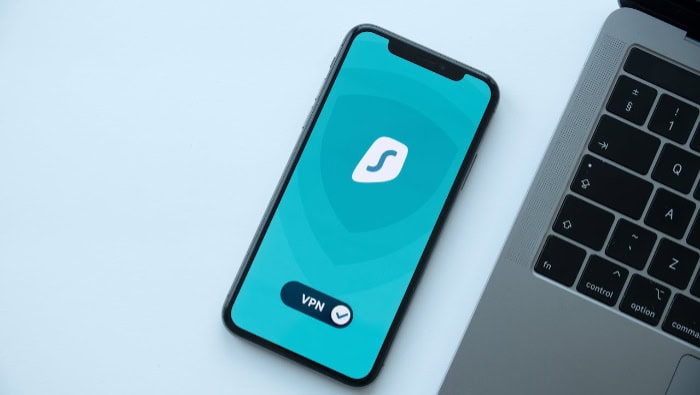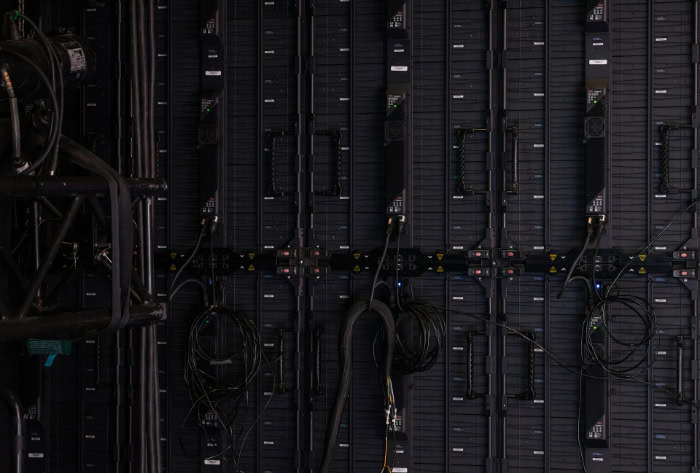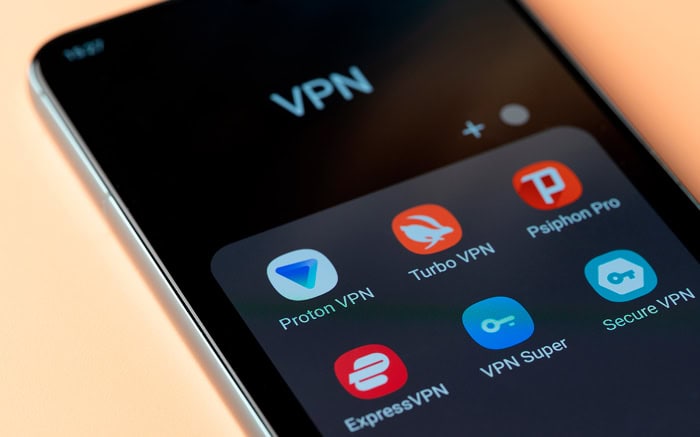VPS vs. VPN: Which One Do You Really Need?

The similarity between “Virtual Private Server” and “Virtual Private Network” creates unnecessary headaches for new users. Tech enthusiasts often toss these acronyms around casually.
Yet these tools perform fundamentally different jobs. A VPS operates as a dedicated remote computer.
It gives you space to host websites, run game servers, or manage heavy software in the cloud. A VPN acts as a security guard. It creates an encrypted tunnel to protect your personal data and mask your location while browsing.
Confusing the two is easy to do but costly. You might end up renting a complex server environment when you simply wanted to bypass a streaming block.
Defining the Technologies
To choose the right tool effectively involves looking past the acronyms to see what these technologies actually build. While both rely on virtualization to function, they create entirely different products for the end user.
A VPS creates a workspace, while a VPN creates a secure pathway.
What Is a Virtual Private Server (VPS)?
A Virtual Private Server is a form of web hosting that uses virtualization technology to split a single physical server into multiple isolated environments. Imagine a large apartment building where the physical structure is shared, but every resident has their own private unit with a lock, key, and complete control over the interior.
Functionally, a VPS acts as a dedicated computer that lives in the cloud. It comes with its own Operating System (OS), dedicated CPU power, RAM, and storage space.
Users receive “root” or administrative access, meaning they have total freedom to install software, write code, or configure the system settings however they see fit. It is a blank canvas for developers and businesses to build upon.
What Is a Virtual Private Network (VPN)?
A Virtual Private Network is a service designed primarily for privacy and security. It creates an encrypted tunnel between a user's device and the wider internet.
Instead of connecting directly to a website, the connection travels through this secure tunnel to a remote server owned by the VPN provider.
This process routes traffic in a way that masks the user's actual IP address and encrypts the data packets moving back and forth. For the average user, the experience is simple and usually requires no technical knowledge.
It functions as a “plug-and-play” application. You open the software, click a button to connect, and the secure tunnel activates immediately without any need to manage a server or configure complex network settings.
Critical Comparison: Security, Privacy, and Anonymity

While both tools offer security features, they protect different things for different reasons. A VPN protects the user's identity and data in transit, whereas a VPS protects the integrity of a hosted environment.
Comparing how they handle encryption, IP addresses, and data logging highlights why one is a privacy tool and the other is a productivity tool.
Data Encryption
A VPN automatically encrypts all internet traffic leaving a device. This encryption wraps the data in a protective layer that makes it unreadable to anyone trying to intercept it, such as Internet Service Providers (ISPs), hackers on public networks, or government surveillance agencies.
A VPS does not inherently encrypt the traffic flowing to and from it. Its primary security focus is server isolation, ensuring that one user on the physical server cannot access the files or resources of another user on the same hardware.
While a user can manually install encryption software on a VPS, it is not a default feature of the hosting service.
IP Address Management
The way these tools handle IP addresses significantly impacts anonymity. Commercial VPNs typically use shared IP addresses.
This means thousands of users route their traffic through the same server IP simultaneously. This creates “crowd anonymity.”
If anyone tries to trace a specific activity back to a user, they hit a wall of mixed traffic from thousands of different people, making individual identification nearly impossible.
In contrast, a VPS usually provides a static, dedicated IP address assigned solely to one user. While this hides the user's home IP address from websites, the dedicated IP is permanently linked to the VPS account.
Any online activity can be easily traced back to that specific server, and subsequently, to the individual paying the bill.
Logging Policies
Privacy often comes down to the business model of the provider. Commercial VPN services sell privacy as their main product.
Consequently, reputable providers enforce strict “No-Logs” policies. They promise not to record browsing history, connection timestamps, or bandwidth usage to ensure they have no data to hand over if legal authorities request it.
VPS providers operate differently. They usually keep strict logs of access, usage, and system performance.
This data is necessary for billing, technical support, and ensuring users do not violate terms of service by hosting illegal content. A VPS provider will almost always have a record of who owns the server and when they accessed it.
Use Cases: When to Choose a VPN

Most internet users looking for security or freedom online will find that a VPN solves their problems directly. It is the appropriate choice for protecting personal data and bypassing artificial barriers on the web.
Geo-Spoofing and Content Access
One of the most popular reasons to use a VPN is to bypass geographic restrictions. Streaming services like Netflix and Hulu enforce regional blocks due to licensing agreements, preventing users in certain countries from viewing specific content.
By routing traffic through a server in a different country, a VPN tricks these services into believing the user is physically located there. This capability also allows users in restrictive nations to access censored websites and social media platforms.
Public Wi-Fi Security
Free Wi-Fi networks at coffee shops, airports, and hotels are notoriously insecure. Hackers can easily intercept data transmitted over these open networks.
A VPN is essential in these environments. It encrypts sensitive information, such as banking credentials, passwords, and emails, ensuring that even if a hacker intercepts the signal, the data remains unreadable.
ISP Throttling Prevention
Internet Service Providers sometimes intentionally slow down connection speeds for specific types of traffic, such as large file downloads, torrenting, or high-bandwidth gaming. This practice is known as throttling.
Because a VPN encrypts traffic, the ISP cannot see what the user is doing. They cannot distinguish between a simple web search and a large file download, preventing them from selectively throttling the connection based on activity type.
General Anonymity
Advertisers and websites build detailed digital profiles of visitors by tracking their IP addresses across the internet. A VPN masks the real IP address, replacing it with the address of the remote server.
This prevents third-party trackers from linking browsing habits to a specific physical location or identity, allowing for a more private online experience.
Use Cases: When to Choose a VPS

A VPS is a powerful tool for creators, developers, and professionals who need a reliable machine that never sleeps. While a VPN hides you, a VPS amplifies your ability to host, compute, and manage digital projects.
It provides a stable, always-on environment for tasks that a personal home computer simply cannot handle efficiently.
Web and Application Hosting
When a website outgrows basic shared hosting, a VPS is the logical next step. It handles higher traffic volumes without crashing because resources like RAM and CPU are dedicated to that specific site.
Developers also use them to host complex web applications or databases that require specific custom configurations not allowed on standard hosting plans. This isolation ensures that a traffic spike on a neighbor's website does not slow down your own.
Private Gaming Servers
Multiplayer games like Minecraft, Rust, or Valheim perform best on a dedicated server. Hosting a game on a home computer often leads to lag and requires the host to keep their PC running constantly.
A VPS offers low latency and persistent uptime. This means the game world remains active and accessible to friends 24/7, regardless of whether the owner is online or offline.
It gives players control over game rules, mods, and who is allowed to join.
Automated Trading and Scripts
Traders often use automated software or bots to execute Forex or crypto trades based on market movements. These programs need to run without interruption to be effective.
A VPS provides a stable environment where trading robots or social media automation scripts can operate continuously. This ensures no opportunities are missed due to a power outage, system restart, or internet disconnection at home.
Remote Desktop Workspaces
A VPS can be configured to act as a fully functional remote computer. By setting up a remote desktop environment, users can log in to their server from a tablet, laptop, or phone anywhere in the world.
This allows access to specific files, heavy-duty software, or a consistent work environment without needing to carry a high-performance physical laptop. It effectively turns a weak device into a powerful workstation through the cloud.
The Intersection: Self-Hosting a VPN on a VPS

Advanced users often combine these technologies to leverage specific advantages. It is entirely possible to rent a Virtual Private Server and install Virtual Private Network software on it.
This hybrid approach changes the dynamic of online privacy, trading easy anonymity for control and reputation.
The DIY Configuration
Instead of paying a subscription to a commercial VPN provider, a user rents a low-cost VPS and manually installs VPN protocols like OpenVPN or WireGuard. This turns the VPS into a private VPN server.
The user connects their phone or laptop to this server, routing their traffic through it just like a commercial service. The difference is that the user is the only person on that server, effectively becoming their own VPN provider.
Advantages of the Hybrid Model
The primary advantage is IP reputation. Commercial VPN IP addresses are shared by thousands of people.
Consequently, banks, streaming services, and websites often blacklist these IPs or force users to solve endless captchas. A private VPS IP is unique and clean, making it much less likely to trigger security alarms.
Additionally, the user retains total control over their data, eliminating the need to trust a commercial provider's claims about their logging policies.
Disadvantages of the Hybrid Model
This method has significant downsides regarding true anonymity. Because the VPS is rented from a hosting company, the IP address is directly linked to the user's credit card and billing information.
It does not provide the crowd anonymity of a shared commercial VPN, making it unsuitable for hiding identity or bypassing strict government censorship. Furthermore, it requires technical skill.
The user is responsible for security patches, command-line configuration, and ensuring the server itself is not hacked.
Conclusion
Ultimately, the distinction lies in intent. A Virtual Private Server is a platform for creation and hosting.
It gives you a digital workspace to build websites, run applications, or manage game servers. A Virtual Private Network is a tool for protection and access. It secures your data, masks your identity, and lets you bypass artificial borders.
To decide, look at your immediate needs. Choose a VPN if you want to protect your privacy, secure your connection on public networks, or change your virtual location to stream content.
Choose a VPS if you need to run a high-traffic website, host a private game server, or operate software that must remain online twenty-four hours a day.
For the average internet user seeking better security, a commercial VPN is the correct choice. It requires no technical skill and offers immediate protection.
The VPS remains a specialized tool for developers, business owners, and tech enthusiasts who need a dedicated remote machine.
Frequently Asked Questions
Can I use a VPS and a VPN at the same time?
Yes, you can use both simultaneously without conflict. Many developers use a VPN on their local computer to secure their connection while logging into their remote VPS. This adds an extra layer of security by encrypting the data stream before it reaches the server administration panel.
Does a VPN slow down my internet speed?
A VPN typically reduces internet speed slightly because your traffic must travel to a remote server and undergo encryption. However, premium services minimize this lag. In some cases, a VPN can actually improve speeds if your Internet Service Provider is intentionally throttling specific types of traffic like streaming or gaming.
Is a VPS safer than a VPN for online banking?
Generally, no. A VPS is a remote computer, not a security tool for your local device. If you are on public Wi-Fi, a VPS does not encrypt the connection between your phone and the bank. A VPN is the superior choice for banking because it encrypts your login details immediately.
Are free VPNs or VPSs worth using?
Free services often come with hidden costs. Free VPNs frequently sell user data to advertisers to cover expenses, which defeats the purpose of privacy. Free VPS tiers are extremely limited in power and storage, making them unsuitable for anything beyond very basic testing or learning how to code.
Do I need a VPS or VPN for gaming?
It depends on your goal. If you want to host a private match for friends that runs 24/7, you need a VPS. If you want to protect yourself from DDoS attacks, lower your ping, or play on servers in different regions, you need a VPN.


